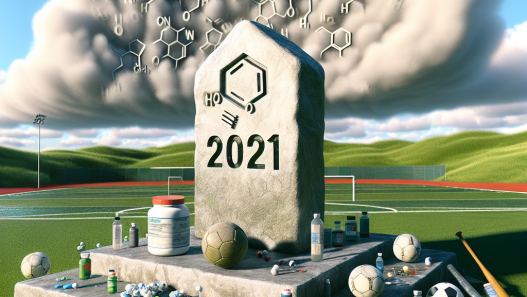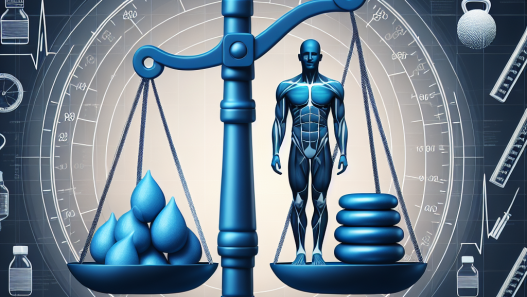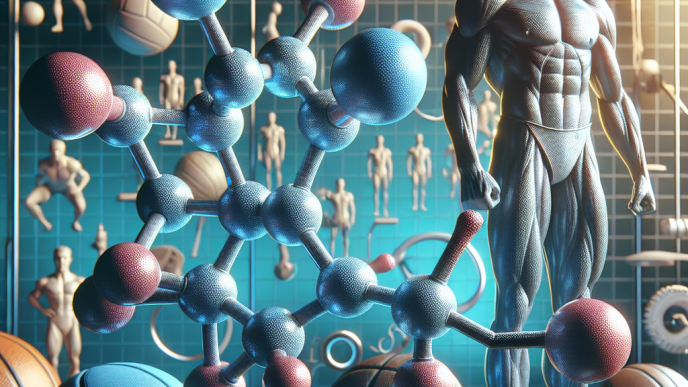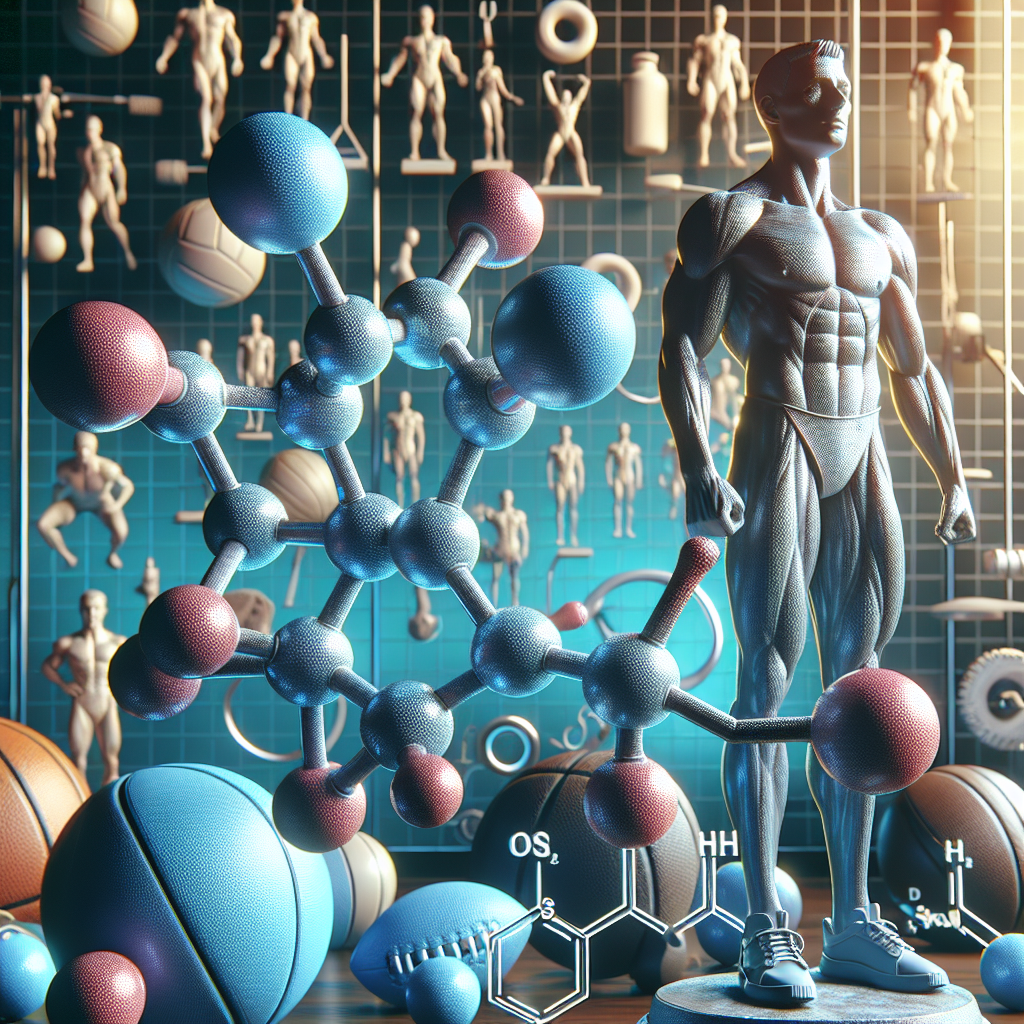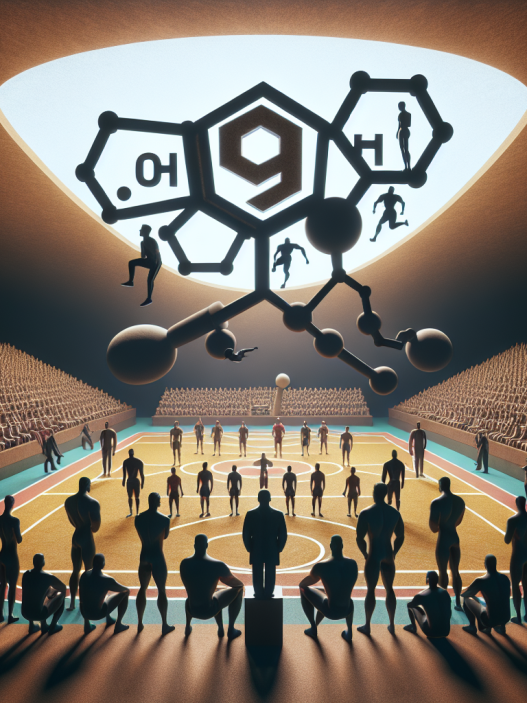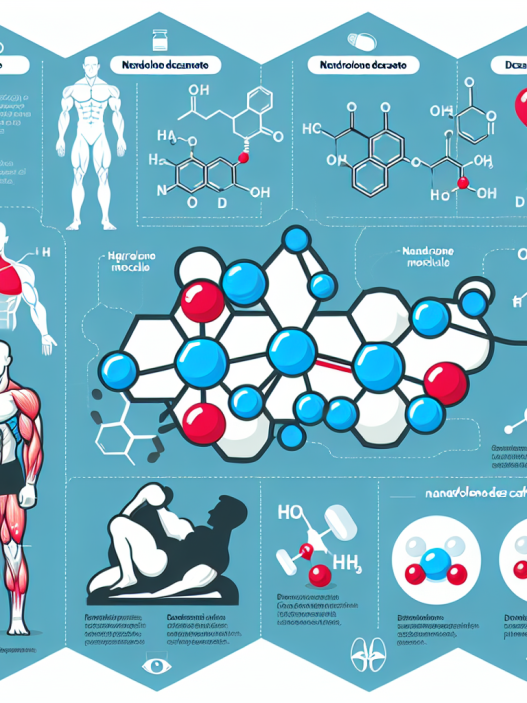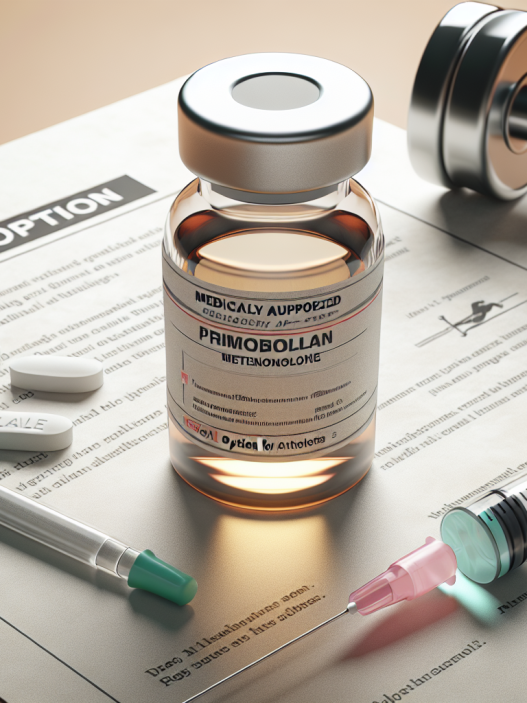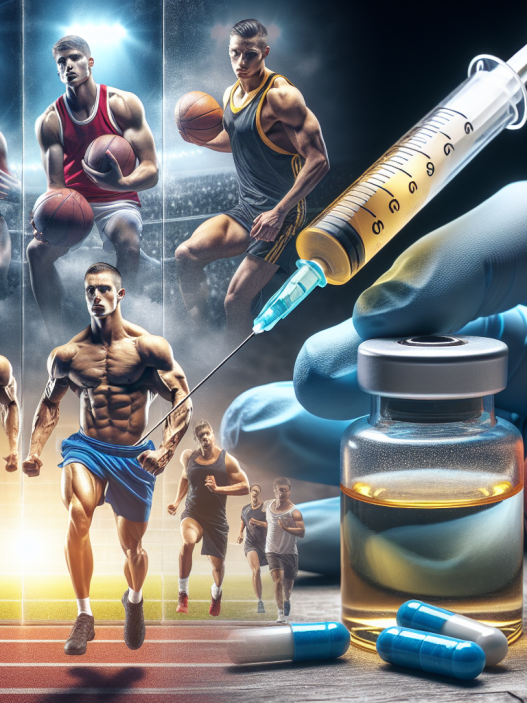-
Table of Contents
Nandrolone: Anabolic Agent in Sports Pharmacology
Sports pharmacology is a rapidly growing field that focuses on the use of drugs and supplements to enhance athletic performance. One of the most commonly used substances in this field is nandrolone, an anabolic steroid that has been used by athletes for decades. In this article, we will explore the pharmacology of nandrolone, its effects on athletic performance, and its potential risks and benefits.
What is Nandrolone?
Nandrolone is a synthetic derivative of testosterone, the primary male sex hormone. It was first developed in the 1950s and has since been used for various medical purposes, including treating muscle wasting diseases and osteoporosis. However, it is most commonly known for its use in sports as an anabolic agent.
As an anabolic steroid, nandrolone works by increasing protein synthesis and promoting muscle growth. It also has androgenic effects, meaning it can increase male characteristics such as facial hair and deepening of the voice. Nandrolone is available in various forms, including injectable solutions and oral tablets.
Effects on Athletic Performance
The use of nandrolone in sports is primarily aimed at enhancing athletic performance. It is believed that nandrolone can increase muscle mass, strength, and endurance, making it a popular choice among athletes in sports such as bodybuilding, weightlifting, and track and field.
Studies have shown that nandrolone can indeed increase muscle mass and strength in athletes. For example, a study by Hartgens and Kuipers (2004) found that nandrolone use in combination with resistance training resulted in a significant increase in muscle mass and strength compared to training alone. This is due to the anabolic effects of nandrolone, which promote muscle growth and repair.
In addition to its effects on muscle mass and strength, nandrolone has also been shown to improve athletic performance in terms of endurance. A study by Kicman (2008) found that nandrolone use in endurance athletes resulted in improved performance in long-distance running and cycling. This is thought to be due to the increased oxygen-carrying capacity of the blood, which can improve endurance and delay fatigue.
Risks and Benefits
While nandrolone may have positive effects on athletic performance, it is not without its risks. Like all anabolic steroids, nandrolone can have serious side effects, including liver damage, cardiovascular problems, and hormonal imbalances. It is also a banned substance in most sports organizations and can result in disqualification and sanctions if detected in an athlete’s system.
However, when used under medical supervision and in appropriate doses, nandrolone can have potential benefits for certain medical conditions. For example, it has been used to treat muscle wasting diseases and has shown promise in improving bone density in patients with osteoporosis. It may also have potential benefits for individuals recovering from injuries or surgeries, as it can aid in muscle repair and recovery.
Pharmacokinetics and Pharmacodynamics
The pharmacokinetics of nandrolone vary depending on the form of administration. When taken orally, it is rapidly absorbed and metabolized by the liver, resulting in a short half-life of approximately 4 hours. However, when administered via injection, nandrolone has a longer half-life of approximately 8 days, allowing for a sustained release of the drug into the body.
The pharmacodynamics of nandrolone involve its binding to androgen receptors in various tissues, including muscle and bone. This results in an increase in protein synthesis and muscle growth, as well as an increase in bone density. Nandrolone also has anti-catabolic effects, meaning it can prevent the breakdown of muscle tissue, which can be beneficial for athletes during intense training.
Expert Opinion
Nandrolone is a powerful anabolic agent that has been used by athletes for decades to enhance their performance. While it may have potential benefits, it is important to note that its use comes with serious risks and is considered a banned substance in most sports organizations. As with any drug, it should only be used under medical supervision and in appropriate doses.
Furthermore, it is crucial for athletes to understand the potential consequences of using nandrolone, both in terms of their health and their athletic career. The use of performance-enhancing drugs not only goes against the spirit of fair play in sports but can also have long-term negative effects on an athlete’s health and well-being.
References
Hartgens, F., & Kuipers, H. (2004). Effects of androgenic-anabolic steroids in athletes. Sports Medicine, 34(8), 513-554.
Kicman, A. T. (2008). Pharmacology of anabolic steroids. British Journal of Pharmacology, 154(3), 502-521.
Overall, nandrolone is a powerful anabolic agent that has been used in sports for decades. While it may have potential benefits for athletic performance, its use comes with serious risks and is considered a banned substance in most sports organizations. It is important for athletes to understand the potential consequences of using nandrolone and to prioritize their health and well-being over short-term performance gains. As the field of sports pharmacology continues to evolve, it is crucial for athletes to make informed decisions and prioritize their long-term health and integrity in their sport.





